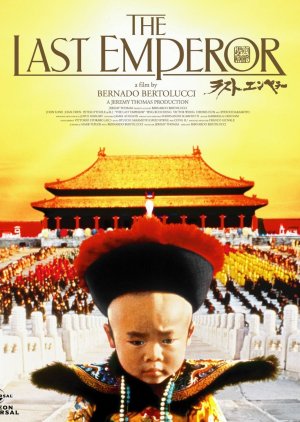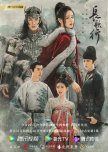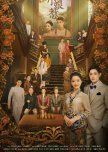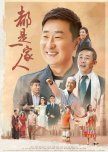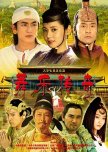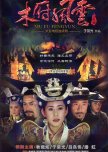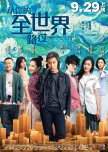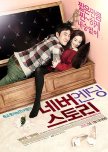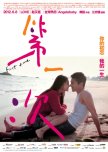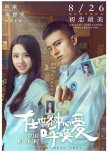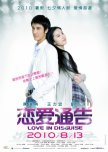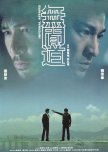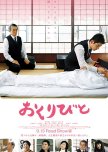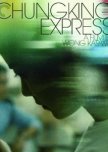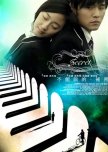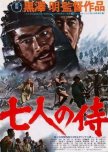
I thought it was a great movie that was able to portray Puyi's life and the background of China's history perfectly! I recommend to anyone who is interested in learning more about China, and especially if you are taking a class on China's history. Even if you're just interested in watching a good movie, this is for you! It is able to hit your emotions without over dramatizing things and just keeping it real! Also, you get to see inside the Forbidden City which is absolutely stunning! This is actually the first film ever that was given permission to film inside of the city, so take advantage of this and watch it!
The only complaint i would have with it, is there were a couple unnecessary scenes in my opinion, but I guess others may enjoy them as well. Also, I haven't read them, but I recommend reading the book Twilight in the Forbidden City which has additional information.
Was this review helpful to you?

"You are responsible for what you do"
The Last Emperor was epic in scope with filming for the first time in the Forbidden City, stunning costumes, and an enormous cast. It covered sixty years of Chinese history largely through the eyes of one man…the last emperor of China.The film bounced back and forth in Emperor Pu Yi’s life in chronological order from his coronation at the age of 3 with his future life as a prisoner of the PRC. From the time he ascended the throne he was told he could do anything, anything that was except leave the Forbidden City. All of his needs were taken care of with the exception of having no friends, his company primarily old eunuchs. As he aged, he was given a Scottish tutor named Reginald Johnston with whom he became close. While safely ensconced behind the city’s walls, different factions gained and lost power outside. Instead of escaping those walls, he escaped into marriage with his Empress and concubine.
After the Beijing Coup in 1924 he bid a final farewell to The Forbidden City and was sent to Tientsin where he lived a hedonistic lifestyle. The Japanese army convinced him and/or coerced him into becoming the emperor of Manchukuo, previously Manchuria and Pu Yi’s ancestral home. Instead of finally becoming the ruler he had dreamed of being, he found himself a puppet of the Japanese. Things went from bad to worse there when the Japanese lost WWII and were looking for the exit door. Pu Yi was captured by the Russians and later turned over to the PRC where he was imprisoned for ten years in order to be “re-educated”.
As glorious as the sets, scenery, and costumes were, Pu Yi wasn’t always the most fascinating character. He went from being a figurehead to a puppet to a prisoner. He had no say in the government and often led an insular life. Dramatic events in China and globally impacted him on the periphery but politically speaking he was as impotent as his eunuchs had been. Prison gave him new insights into himself, others, and the war. A person who had his share of damaging tantrums, he had to learn to grow up. He’d never put toothpaste on his toothbrush or learned how to tie his shoes, soon he had to also learn to pee correctly and to garden. While imprisoned Pu Yi was shown a WWII film demonstrating how the people had suffered and the terrible atrocities committed. After the reality check his reformation and realization began to take hold.
I wish Italian director Bernardo Bertolucci had briefly explained some of the political upheavals better instead of just showing another set of beige uniforms in charge. The cinematography was good and maybe it was because they were trying to show a more realistic view of the places Pu Yi lived in or perhaps it was mood lighting, but many scenes seemed abysmally dark. The version I watched had most of the dialogue in English with some Japanese in a few scenes which was disappointing. I would have much preferred for the dialogue that was supposed to be Chinese dubbed in Mandarin. The Last Emperor’s greatest achievement was not the long glossed over historical events covering six decades, for many in 1987 it was the first look into the magnificent 9,999 room palace and UNESCO World Heritage Site.
Joan Chen’s performance as Wan Rong plumbed emotional depths as the Empress became more isolated and dependent on opium. John Lone did his best with Pu Yi, but the character was one I felt little sympathy toward. The wars and tragedies never really touched him except for preventing him from being sole ruler over China. The late Peter O’Toole showed up in the role of Pu Yi’s tutor adding some gravitas to the cast.
The film didn’t touch on the cost to Pu Yi’s people during all of the political upheavals. Even during the various battles and revolutions he ate and dressed well, always had whatever he wanted while many of his people struggled for safety and daily needs. The film ended with Mao’s rule and cult of personality. Despite eliminating the imperial court, they traded one Emperor for another of sorts.
13 February 2024
Was this review helpful to you?

The Last Emperor follows the life of Puyi through a long part of China´s 20th century, so it´s an amazing journey across the great changes of that period of time, we can see that in social general portray, but most important, we can see all those changes in a single person. Puyi is an amazing character because at the very beginning when he is locked in the Forbidden City is really pitiful because of his lack of freedom and because he represents the fall of a great period, the fall of a long time of dynastic power. But as he grows up he changes into this person you just can judge as a normal person with imperfections.
Music is also great as it marks differences between the traditional China inside the Forbidden City, and a country outside that place which had to endure a lot of drastic and sudden changes, so we listen to both: traditional Chinese music and western music.
Was this review helpful to you?

 1
1